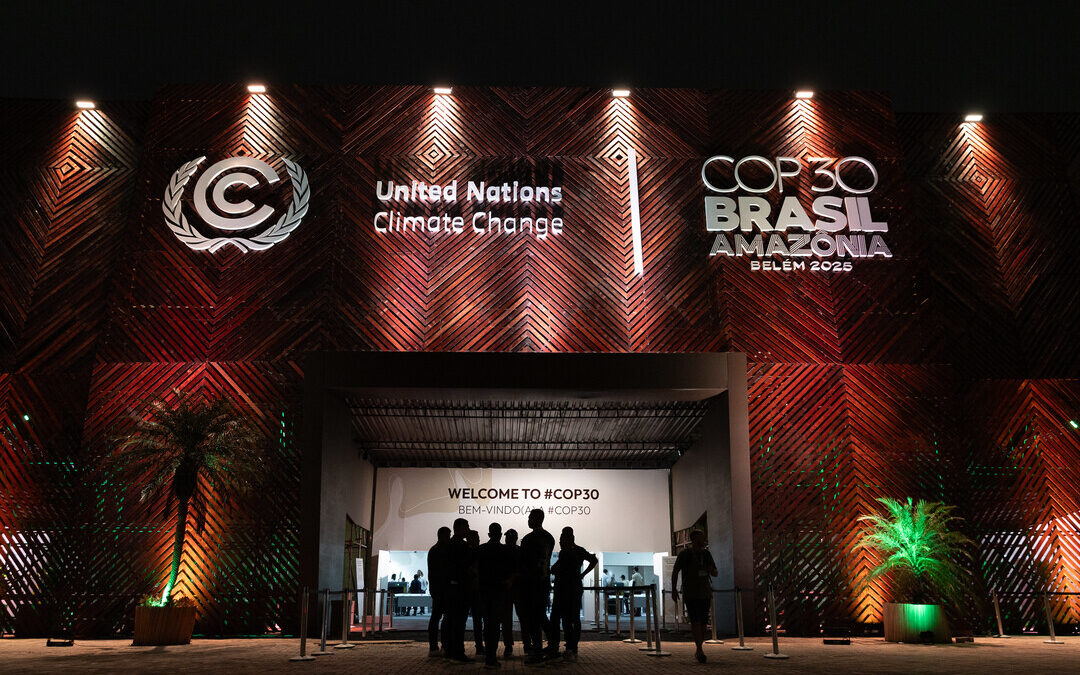Global Standards Bodies Unite at COP30 to Drive Measurable Climate Action
Twenty-one global organizations join forces at COP30 to show how standards turn climate promises into action.
Twenty-one global organizations, including International Organization for Standardization, International Electrotechnical Commission and UL Standards & Engagement, are joining forces at the UN Climate Change Conference in Belém, or COP30, to push for the wider adoption of global standards in climate policy and implementation.
Building on momentum from COP30’s predecessor event in Baku, the three initiators will reconvene the “Standards Pavilion” in Belém, Brazil, from Nov. 10 to 21.
The pavilion will unite UN agencies, standards bodies and industry coalitions to promote credible and interoperable tools that link climate ambition to measurable results.
This marks the second edition of the pavilion, which organizers say is one of the largest-ever coalitions of its kind to engage collectively at a United Nations climate conference.
Turning Commitments Into Measurable Action
“Connecting stakeholders and their respective climate actions for bigger impact is more important than ever,” said IEC Secretary-General and CEO Philippe Metzger. “Our goal at COP30 this year is to educate policymakers and business leaders about the measurable impact standards can have in building a sustainable future.”
Standards, Metzger added, offer a trusted framework that bridges ambition and accountability. They provide the “common language” to translate climate commitments into verifiable outcomes.
Standards as the Missing Link in Implementation
The pavilion’s core mission is to integrate standards into national and international climate strategies. It aims to empower action through reliable tools, amplify impact by aligning policies and finance and harmonize solutions across sectors and borders.
ISO Secretary-General Sergio Mujica said international standards are vital in turning pledges into progress. “They provide trusted, globally agreed frameworks that help governments, businesses and civil society measure progress, demonstrate accountability, and build confidence in sustainable solutions,” he said.
As the world shifts from commitments to implementation, Mujica noted, standards ensure transparency and interoperability in achieving meaningful results.
Building Momentum Through Collaboration
This year’s pavilion will feature workshops and panel discussions showcasing how standardization can accelerate climate finance, reporting and policy design.
The sessions will emphasize collaboration among governments, corporations, and multilateral institutions to foster consistent approaches to sustainability.
Jeff Marootian, president and CEO of UL Standards & Engagement, said international standards offer “practical, reliable tools” to transform promises into measurable action. “They provide a solid framework to accelerate the implementation of climate policies and can turn commitments into effective and measurable outcomes,” he said.
A Broader Alliance for Sustainable Progress
The Pavilion’s 21 partners span continents and sectors, including Brazil’s National Standards Body, the World Business Council for Sustainable Development, the Organisation for Economic Co-operation and Development and multiple UN agencies such as UNDP, UNEP Finance Initiative and UNIDO.
Together, they aim to position international standards as a cornerstone of credible climate governance, ensuring that global climate efforts at COP30 and beyond are not only ambitious but also accountable, transparent and trackable.
Also Read:
ISO Unveils World’s 1st Biodiversity Standard to Drive Corporate Action
Nirmal Menon
Related posts

Subscribe
Error: Contact form not found.


